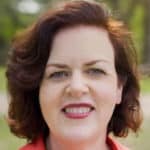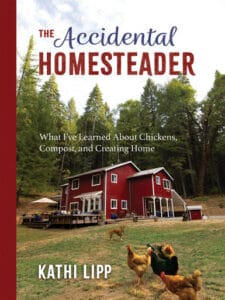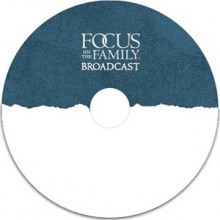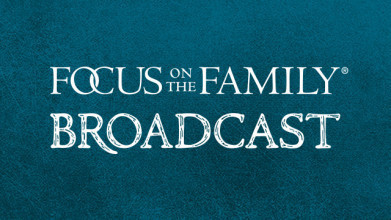Preview:
Kathi Lipp: Our relationship with God and with others looks radically different, whereas we might out to dinner with friends before, now they’re coming for a weekend and we can talk deeply. Uh, when we are looking at our garden, when we’re looking at the seasons, it really does, it comes alive in a new way.
End of Preview
John Fuller: Well, that’s Kathi Lipp, and she joins us today on Focus on the Family with Jim Daly, and I’m John Fuller.
Jim Daly: Uh, living far away from a populated area sounds like a dream come true for some. I tend to be in that camp. I’d love to move out of-
John: You do live a little bit-
Jim: Eh, a little bit out the way.
John: Yeah.
Jim: But it’s not that far out of the way.
John: Okay.
Jim: Close enough to get ice cream when you need it.
John: (laughs)
Kathi: (laughs)
Jim: But, you know, Jean and I have talked about that, should we move further out. And she’s like, “I don’t think so.” So it depends on, you know, what you’re looking for. But today, we want to talk about, I would say, the splendor as a person who would like to do that.
John: Mm-hmm.
Jim: But we’re gonna talk with somebody who’s actually done it. And, uh, Kathi Lipp has been here before. She is such a fun guest. But her and Roger, her husband Roger, have done the unthinkable. They have moved out to 33 acres is rural northern California.
Kathi: Mm-hmm.
Jim: They’ve got chickens, they’ve got roosters. I guess that’s a chicken. And, uh, and then all the-
Kathi: A much louder one.
Jim: (laughs) And then… A much louder one. Sounds like you know what I’m talking about.
Kathi: Yes (laughs).
Jim: But, and, and other crazy animals and other things. So I’m looking forward to today’s program.
John: Yeah, this really boils down to kind of a live simply message for all of us, whether you’re in an urban area or a suburban area. Uh, there’s an area of life that we all need to deal with. It’s just the clutter and the business. And Kathi Lipp is a terrific guest to address this. She’s a speaker and author, and the host of Clutter Free Academy, the podcast with Kathi Lipp. And she’s written a terrific book that we’re talking about today, The Accidental Homesteader: What I’ve Learned About Chickens, Compost, and Creating Home.
Jim: (laughs)
John: And we’ve got details about the book at focusonthefamily.com/broadcast.
Jim: Kathi, welcome back.
Kathi: It is always so much fun to be with you guys.
Jim: It, it-
Kathi: Thank you so much for having me.
Jim: I can’t imagine Roger (laughs).
Kathi: Yeah, oh, right?
Jim: I mean, what are you coming up with next? (laughs)
Kathi: (laughs)
John: (laughs)
Kathi: You know, we’ve got to keep the-
John: Downtown New York.
Kathi: … people entertained, right?
Jim: This is a wild ride, uh-
Kathi: It-
Jim: … being married to Kathi Lipp.
Kathi: (laughs)
Jim: (laughs)
Kathi: Okay. I have to say I am more of a go-along-for-the-ride with this.
Jim: Seriously? Okay, so this is Roger’s idea.
Kathi: Well, okay. It was a mutual musing that-
Jim: (laughs)
Kathi: … turned into, “Are you kidding me?”
Jim: You know, not all thoughts need to be acted upon.
John: (laughs)
Kathi: I-
Jim: Just, uh, just an insight.
Kathi: I needed to bring Roger to this. Actually, this is, like, the best not-thought-out decision we’ve ever made.
Jim: Oh, those are fun.
Kathi: Yeah.
Jim: I like that.
Kathi: Well, you know, y- it’s… Sometimes God, you know, smacks you against a brick wall.
Jim: (laughs)
Kathi: Sometimes that happen. And sometimes, he gently just keeps leading you down a path of decisions-
Jim: Well-
Kathi: … that you never thought you’d make. And here we are.
Jim: Right. So speaking about leading down a path-
Kathi: Yeah.
Jim: … it’s kind of like a chicken.
Kathi: Yeah (laughs), yes.
Jim: You lead chickens down the path with a little bit of seed, right?
Kathi: Yes, yes.
Jim: So in that regards, what I’ve learned about chicken, compost, and creating home-
Kathi: Yes.
Jim: … (laughs) I mean, there’s a subtitle.
Kathi: Right? Because-
Jim: So what have you learned about compost?
Kathi: Um, that we can’t really do it up in the mountains because bears like compost.
Jim: Okay. I thought it might explode or something like that.
Kathi: Yeah, well, you have to be very careful what you leave outside, because we live kind of near Lake Tahoe.
Jim: (laughs)
Kathi: And the Lake Tahoe bears are the tourist bears. They know how to open up car doors and-
Jim: And allow you to sit down?
Kathi: Yeah, well-
Jim: That is a well-mannered bear.
John: (laughs)
Kathi: Let’s just say once a bear has been in your car, you don’t want that car anymore. Um, but ours, um, are just looking for food. And they will get into your chicken coops or your compost piles. So we com-
Jim: So how do you keep these bears away as a starter to this conversation (laughs)?
Kathi: Um-
John: ‘Cause most of us need this information, Kathi.
Kathi: So, um, there are more aggressive ways that we are not willing to partake of, but, uh, one of the things, are ca- we call them stink pots. And they are Home Depot buckets with holes drilled in the top filled with Pine Sol. So it’s very ironic to me-
Jim: They don’t like that smell?
Kathi: They don’t like the smell of Pine Sol.
Jim: I love the smell of Pine Sol.
Kathi: Yeah. The bears do not. But we put those stink buckets out, and they seem to help.
John: Hm.
Jim: That’s great.
Kathi: Yeah.
Jim: So you haven’t had a bear problem?
Kathi: Um, we have-
Jim: Lately.
Kathi: … had a bear problem, that’s why we take it seriously. And they have been laying low for a while.
Jim: So in doing this, you started to explain this, and we kind of-
Kathi: Mm-hmm.
Jim: … uh, stepped all over it.
Kathi: It’s all good.
Jim: But, uh, you and Roger are thinking, “Okay. In, in, in the big dream-
Kathi: Yeah.
Jim: … I want to move out to where we have no support of anybody, we have no water or energy, electricity.”
John: And just rely on God.
Jim: I mean-
Kathi: Yeah (laughs).
John: (laughs)
Jim: And this is a good thing, right?
Kathi: It, it started as we’ve always loved the mountains. You know, we love the mountains where the mountains are supported.
Jim: (laughs) That’s a good thing.
Kathi: You know, like, with, like you said, with electricity, all that co- those kind of things. And so we thought, “Wouldn’t it be fun to have a little cabin in the woods, and we can Airbnb it when we’re not using it,” and all this. And then we started to think, “Well I’m also a writer. We could do writer’s retreats there.” So our one little room in the woods turned into a, a pretty big house where we do writer’s retreats. And then when we were looking at this house, they said, “You’re taking the land with it, right?” And we said, “Yeah, we saw that there are eight acres. I don’t know what we’re gonna do with eight acres.” And they said, “Well, there’s another, like, 25 acres.” I’m like, “Oh, no. We’re not taking that.” And Roger’s like, “Well, hang on a minute.” And so now we have 33 acres in the middle of the El Dorado Forest. And it’s just, like, one decision after another, and thinking, “Oh, we can’t do that.” And then God kind of showing, uh, “Well, yeah, you can.” And so we are now out in the middle of God’s country w-… Yeah, sometimes it feels like only God (laughs).
Jim: Well, that’s a good thing.
Kathi: Yeah. It’s, it’s been a, a faith-growing experience. It’s been a marriage-growing… It’s grown us in every single way. And things that we never thought we could do, we’re doing. And it’s been pretty fun.
Jim: So, so in reading the book, one of the things, uh, to start this conversation-
Kathi: Yeah.
Jim: … is, uh, how do others come up with, uh, mindful and important things when they’re thinking of their dream adventure? (laughs)
Kathi: Yeah. So I think one of the things that we had to figure out is, one, it’s okay to dream. Two, there has to be some compromise in the dream. There, you know, compromise as a, with your spouse, compromise, like, what we dream it’s gonna look like is never how it turns out.
Jim: Right.
Kathi: Uh, you know, we really thought we were gonna keep our house in San Jose, and, you know, air- support this through Airbnb. And we just made the decision, uh, we were complicating our life by having two places.
Jim: Yes.
Kathi: And that’s not what we wanted. And so we kept figuring out what the new thing was. And the new thing was, okay, we wanted to simplify. I will say it didn’t necessarily make our lives easier to move to the middle of nowhere. Um, easier is not the term I would use, but better for sure.
Jim: Really?
Kathi: Yeah. Oh, you know, uh, I… The two things that are really hard, I’ll just admit, our church. Our, our church is an hour and a half away.
Jim: Wow.
John: Hm.
Kathi: Yeah. And so that’s been stretching and growing, and, uh, being a little bit further away from our kids. But the advantage is they want to come visit because where we live is kind of cool.
Jim: So with that, I mean, there’s a lot of change-
Kathi: Mm-hmm.
Jim: … when you do something like this. I can only imagine. (laughs)
Kathi: Yeah.
Jim: But, I mean, I think with Roger, too, I mean, you got to learn new skills.
Kathi: Right, yeah.
Jim: You got to learn how to know the rhythms of things.
Kathi: Yeah. Well, and we really didn’t grow up with seasons. We’re from Silicon Valley. Like, it’s 72 all the time. And so to learn when things grow and when they don’t, because now we’re in a much different climate.
Jim: Mm-hmm.
Kathi: Um, when we bought the house, we asked what’s your, uh, annual snowfall, and they said two to four inches. I’ll just say, that has not been our experience. Last March, we had 14 feet.
Jim: 14 feet?
Kathi: 14 feet.
Jim: They kind of missed that.
Kathi: Yeah. That, that was, that prediction was a little bit off. So Roger’s having to be a lumberjack. We’re having to learn to fell trees. We’re having to learn to, you know, do our own firewood and build things. And-
Jim: It sounds like you’re living in the old days. (laughs)
Kathi: In, in some ways, because it’s so remote, it kind of is. You know-
Jim: Are you making your own bread?
Kathi: I am making my own bread. I know-
Jim: Ooh. I want to come to your house.
Kathi: But for winter, we’re inside, you know, not really going to town. And people laugh when I say going to town. I’m like, “If it’s more than an hour, it’s going to town. Let’s just be clear.” And so, um, we’re, we’re not going and getting food. So if we want bread, we’re either taking it out of the freezer or making it. And making it’s a lot better, let’s be-
Jim: Oh, yeah.
Kathi: Yeah, let’s be-
Jim: So what’s the hardest situation you’ve encountered do you think-
John: Hm.
Jim: … between weather and chickens and bears and, oh my.
Kathi: So, um, I know one time you were flying over Tahoe-
Jim: Oh, yeah.
Kathi: … and saw a fire. We actually had the Caldor Fire that started a mile and a half from our house.
Jim: We were praying for you going over-
Kathi: Uh-
Jim: … ’cause I knew you were in that area.
Kathi: And we appreciate it. And that fire burned down four sides of us, lasted three weeks. Uh, our town lost 700 homes and 200-
Jim: Wow.
Kathi: … additional structures.
Jim: But it didn’t, it didn’t hit you.
Kathi: It, it burned two acres of our property, but it was because of some amazing, uh, firefighters, both paid and volunteer. A lot of the people up where we live are volunteer firefighters.
Jim: Wow. Think of that.
Kathi: Uh, we still have homes. And so, you know, when you see that, when you see the devastation on the other side of the valley and your house is untouched, you just say, “Thank God. How can we help,” and-
John: Hm.
Kathi: … go to that.
Jim: You know, let’s… A serious moment in that regard.
Kathi: Yeah.
Jim: Because you-
Kathi: Yeah.
Jim: … you are more exposed in that kind of living.
Kathi: 100%.
Jim: I mean, by the elements-
Kathi: Yeah.
Jim: … by all kinds of things.
Kathi: Yeah.
Jim: Uh, pipes freeze, you know, you’re just not-
Kathi: Everything.
Jim: … as taken care of maybe in a city-
Kathi: 100%.
Jim: … or suburban environment.
Kathi: Yeah. Yeah.
Jim: Um, does it make you s-… You know, it sounds silly to say, but is, you resilient, stronger? I mean, what, what attributes are you learning in this experience?
Kathi: I would say that we’re learning a lot about community, that we really rely on each other up there. You know, the, there’s no ambulance where we are.
Jim: Huh.
Kathi: There’s, there’s no… We have a volunteer fire department, and if both volunteers are running to the store, you know, you don’t have that. But we have neighbors that we can call and can call on us. And so our next door neighbor, Paul, is a volunteer firefighter. He’s part of the reason we still have a house. But I found out that he was living on Lunchables for about three meals a day. I’m like, “Well, that’s a way I can help is-
Jim: Huh.
Kathi: … I can bring him food.” And so when we’re cooking meals, we, we set aside a portion for Paul when he’s in town. And we just, you know, everybody gathers together at the, uh, Omo Ranch Fire Safety Council Meetings. That’s kind of our community meeting. Everybody is a part of that.
Jim: Yeah.
Kathi: And so we learn about that. We also learned what to worry about and what not to worry about. And so if we’re worried about something, we don’t stay worried; we do something about it. So we’ve built a water tank on our property because there are no fire hydrants where we live. So we have a water tank there that we hooked up to the fire hydrant that we installed. And so you just learn to figure out, okay, how do I mitigate a lot of these problems that we take for granted other places?
Jim: You know, so much of this, uh, describes some bygone era where you lean on each other as neighbors-
Kathi: Yeah.
Jim: … and depend on each other. You kn-… And, and really when you’re talking about that, you can’t afford as a community to have w- a weak link, ’cause you’re leaning on each other. But think of cities and suburbs where there’re a lot weak links, right?
Kathi: Yeah. And so I think for a lot of us, we have to be gentle encouragements to our neighbors to say, “Hey, can we come help you with that brush around your property? Hey, can we install, pay for the installation of a fire tank in this very strategic place? Hey, can we have access to, uh, the water on your property,” because it, it’s not just about protecting your house. It’s about protecting… ‘Cause protecting your neighbor’s house is protecting your house.
Jim: Yeah.
Kathi: And so you learn to get along even if you may not agree politically or spiritually, um, with somebody else. You learn to get along.
John: Hm. Well this is Focus on the Family with Jim Daly. And our guest today is Kathi Lipp. And, uh, she’s sharing some stories from her life and, uh, the life she and Roger have as accidental homesteaders. That’s the title of the book by Kathi that you can find out more about and get a copy of when you contact us. Our number is 800-A-FAMILY, or stop by focusonthefamily.com/broadcast.
Jim: You know, th- there’s a lot of fun to this.
Kathi: Yeah.
Jim: And a lot of people idealize doing this.
Kathi: Yeah, yeah.
Jim: And you’re mentioning, you know, I’m hearing you say, “It’s a lot of work.”
Kathi: It is.
Jim: But it’s good work. It’s like things that bring you back to earth, back to God.
Kathi: Yes.
Jim: You, in fact, talk in the book about these heavy winters and how God is teaching you so much through those times of solitude. Describe that.
Kathi: Yeah. So there’s a lot of different aspects to that. I will say growing up in cities my whole life, and there is nothing wrong with living in a city. Uh, my favorite people live in cities. But I realize I got kind of spoiled. And the, but the thing is, you know, it, when I lived my whole life, I was very selective about, like, you know, what I would eat and where I would go and how I would spend my time. You don’t get as many choice when you’re there. And so, like, we grow a lot of the food that we eat, but only certain foods grow where we live. So you learn to kind of build your life surro- life around those. But I also know that there is a quietness to these routines, and there’s something about letting the mountain kind of dictate part of your day, especially in the early morning and the late evenings. You know, when, when it’s nighttime, especially in the spring, summer, and winter, you want to be outside, because the stars are, are just, like, they’re unworldly. And in the morning, you’re, you’re running around, you’re doing the chicken stuff, but there’s a quietness to it that is really… It was what my soul needed.
Jim: Huh.
Kathi: And I’m not saying it’s what anybody else should choose, but I realized there was a lot of hustle in my life. There’s st- I’m still very busy, but I’m busy with a purpose and a meaning. And, like, to be a steward of this property and the animals that live there and the plants and everything, it really does make the scriptures come alive when you see about, you know, there’s a time to rest and a time… Like, there is a time for everything. And so we’re not, uh, we’re resting in the winter. We’re deeply resting in the winter. We are deeply resting on Sundays when we get home from church. We are deeply resting because we’re working hard. And so there, there’s just a rhythm that I’ve never experienced before in my life.
Jim: No, that’s interesting. And that, that may be the most observant change is just that rhythm would you say?
Kathi: Yes. It’s, it’s completely different because we are built… Our, our society is built for 24/7, but we aren’t.
Jim: Huh.
Kathi: And so to say… No, when I’m gonna rest, it’s not I’m gonna rest and check my email, or it’s not that I’m going to rest and cook for the rest of the week. No, I’m just really going to rest, and I’m gonna make sure I’m ready for the challenges that come this next week.
Jim: What would you say was the purpose of even doing this book? I mean, it’s a funny topic-
Kathi: Yeah.
Jim: … and there’s a lot of young people that are really interested in homesteading.
Kathi: Oh, yeah. Right.
Jim: I mean, we have about 15 of our young staff in the gallery, and they were telling me, yeah, they’re into this. What’s that appeal?
Kathi: I think it may be a rejection of the 24/7.
Jim: Wow.
Kathi: I think that, uh, they have se-… Now, they may tell me I’m crazy, but I know that there’re a lot of younger people who have seen people my age dedicating ourselves to jobs that maybe in the grand scheme of things don’t matter as much as we would like to think they would, and rejecting the hustle culture that the world has said is required for all of us to keep this thing spinning. And I don’t think God has ever intended us for hustle.
Jim: Huh.
Kathi: And to say this is enough, and this is good is quite a radical statement for me. This is very different than who I was 10 years ago.
John: Hm.
Jim: Absolutely. How did learning to accept your unfinished homestead-
Kathi: (laughs)
Jim: … (laughs) I guess ’cause I don’t know if you’re ever done-
Kathi: Yeah, yeah.
Jim: … but how did that change your perspective on life generally?
Kathi: Uh, I think it gets back to the rhythm.
Jim: Okay.
Kathi: I think we, I think we’re finding a new theme here, friends. Uh, it’s that there is always something to do. There is always something to be working on. There’s always a project in front of us. And when I lived in Silicon Valley, that would make me crazy. Like, when could we ever be finished? And to just understand that that is not possible… I, we are actually doing forest re-management where we live. We have to cut down trees to help prevent fire. Like, there’s all this stuff that we-
Jim: And it’s you and Roger.
Kathi: Yes. It’s just me and Roger.
Jim: (laughs) I love that. Ring, ring-
Kathi: By the way, these-
Jim: … get that saw going, and-
Kathi: Yes. These are not the things they put in the Zillow listing.
Jim: (laughs)
Kathi: I thought that’s a forest. The forest does what the forest does. And it’s like, no, you have to manage it.
Jim: Yes.
Kathi: And to say, you know what, we’re doing the best we can. And there is a point where it’s like we have to be satisfied with our work.
Jim: So how did the red house, as you call it-
Kathi: Yeah.
Jim: … again, the, the house right on the cover-
Kathi: Yeah.
Jim: … how did it start to feel like a home rather than a work assignment?
Kathi: Right.
Jim: (laughs).
John: Hm, yeah.
Kathi: Well, it, it depends on the day, right? There are days where it does feel like a lot to manage. And then there are other days, especially when we have people over, and-
Jim: People over?
Kathi: W- when we ha-
Jim: How’s that happen?
Kathi: Yeah, well people, people want to come.
Jim: Hey, drive two hours out of your way and-
John: Yeah.
Jim: … come to our house.
Kathi: Yeah. And they do. Well, that’s why it’s nice we have a couple of beds. Nobody stays for a day.
Jim: Right.
Kathi: They stay for a few days. But to be able to say, “Hey, that zucchini on the table,” or, “the, uh-
Jim: Is out of the garden.
Kathi: … it’s out of the garden.”
Jim: I love that.
Kathi: You know, the, the eggs from the chickens are, you know, that’s what we’re having for breakfast.
Jim: Free-range. (laughs)
Kathi: It’s free… Oh, it… This is as free-range as you get.
Jim: So free-range, you’ve got to catch the chickens to make sure-
Kathi: Yeah.
Jim: … we get the eggs.
Kathi: And so when we’re all sitting out on the patio, and we have a fire going, and we’re looking up at the stars, and we’re talking long into the night-
Jim: Hm.
Kathi: … that’s home.
Jim: Hm.
Kathi: And, you know, some of our best church services have happened around the campfire.
John: Hm.
Kathi: And I, I know someday we are not physically going to be able to be there, but we’re going to enjoy it as long and as deeply as we can-
Jim: Yeah, that’s good.
Kathi: … while we can. Yeah.
Jim: Let me… Okay, the tender questions.
Kathi: Yeah.
Jim: I understand you like a good latte.
Kathi: I do.
Jim: So those creature comforts-
Kathi: Yeah.
Jim: … if I can call them that, how do you overcome, uh, running five minutes away to your local coffee place and getting that latte you like?
Kathi: I will say, the first six months we lived there, we found an excuse to go into town, like-
Jim: That’s called withdrawal.
Kathi: … every other day.
Jim: (laughs)
Kathi: Yeah, it was withdrawal. It absolutely was. But you figure it out. We bought a cappuccino maker.
Jim: There you go.
Kathi: And Roger learned how to make cappuccino. I do not know how to make them, but he does. And so we, we figure out what’s important, and those become treats instead of necessities.
Jim: That’s good.
Kathi: Yeah.
Jim: How much of your life in that regard, I mean, I think, you know, again, me being a suburban kind of guy-
Kathi: Yeah.
Jim: … you start to make that list of what you cannot live without.
Kathi: Right.
Jim: And then you realize when you do it, oh, actually I can live without all of it.
Kathi: It, it… You know, the only thing I would say when we moved there that we weren’t sure what we would do about was internet. And, um, since there are now more options-
Jim: Called satellite.
Kathi: It’s called satellite. We’re super grateful for that. Everything else, we figured out a workaround. Uh, we just have, you know? We don’t need Uber Eats. We don’t need-
Jim: That’d be a big ticket item. (laughs)
Kathi: It would be a big ticket item.
John: Hm.
Kathi: Uh, we, we don’t need to be at a restaurant on the regular. We’ve, we love what we cook. We love what we do. So like I said, it’s not for everybody, but we keep figuring out new ways to make our lives even better and make our dependence on the rest of the world less and less.
Jim: Well, you sound like you’re saying, though, it sounds like you’re saying you have deeper awareness of your faith.
Kathi: 100%, yes.
Jim: You’re able to give more time to the Lord.
Kathi: Yes.
Jim: You and Roger both by reading and praying together-
Kathi: Yeah, yeah.
Jim: … and talking about deep into the night by that fire-
Kathi: Yeah.
Jim: … about godly things-
Kathi: Yeah.
Jim: … biblical things. That’s got to be a better pace and a better, I don’t know, concentration of your time than living-
Kathi: Oh-
Jim: … in Silicon Valley, and darting over here and there-
Kathi: Yeah.
Jim: … and getting home at 7:00, and don’t forget we have something to pick up, and we’ve got to-
Kathi: Yeah.
Jim: … be at dinner at the Jones’s tomorrow.
Kathi: Our relationship with God and with others looks radically different, whereas we might go out to dinner with friends before, now they’re coming for a weekend-
Jim: Hm.
Kathi: … and we can talk deeply.
Jim: Yeah.
Kathi: Uh, when we are looking at our garden, when we’re looking at the seasons, it really does, it comes alive in a new way. And also just being a, a steward of the land, uh, the animals, we’ve had to learn, like, how to live a little bit differently and live with these rhythms in a way that’s really, it’s exciting. And to see what God has talked about and what his promises are to us, and what we’ve kind of, I don’t know… I will say with American modern conveniences, what we’ve demanded from God as opposed to what God has offered-
Jim: Hm.
Kathi: … um, I think we, we have a better perspective on that, not than other people, but then on what we experienced in a very sheltered and protected life of Silicon Valley.
John: Hm.
Jim: Uh, Kathi, right at the end here.
Kathi: Yeah.
Jim: So people are listening to this. It is quite fun.
Kathi: Yeah.
Jim: It’s intriguing. I mean, some people might be saying, “I want that.”
Kathi: Yeah.
Jim: And then they’re panting-
Kathi: Yeah.
Jim: … saying, “That’s the kind of life I’d like to pursue.”
Kathi: Yeah.
Jim: And they’re in a place they might be able to do it. Uh, land tends to be a little cheaper far away from places.
Kathi: Yeah.
Jim: There’s probably a reason for that (laughs).
Kathi: Yes, there is (laughs).
Jim: I bet you and Roger missed.
Kathi: Yeah.
Jim: But, uh, how, how do you get started? I mean, yours is accidental.
Kathi: Right. It really is. But I would say find the part of that life that appeals to you. Is it the simplicity, because we’re forced to live a simpler life, but people can choose to live a simpler life. They can choose to say, “You know what, we’re only gonna go out one night a week. and otherwise, we are going to figure out how to cook dinner at home, how…” And I would say the number one part of this is the partnership that Roger and I have really developed-
Jim: Hm.
Kathi: … in new and deep ways. We don’t do something because, you know, the guy’s supposed to do that, or the woman… We do it because it has to get done. And we can just say, “You know what, what part of you are best at this? What, what part of us is best at that, and we can figure it out together.” So if you can start to have those conversations with the people you live with, “What part appeals to you? What does my soul really need,” and you can start creating that no matter where you live.
Jim: That’s good. Kathi, this has been great, and I so appreciate your revelation. You and Roger are always doing different things than the rest of us. And this great book, The Accidental Homesteader: What I’ve Learned About Chickens, Compost, and Creating Home, uh, probably not something a person’s looking for necessarily, but it may be something to look at.
Kathi: Yeah.
Jim: Living your life a little more simply and honoring the Lord through that, either in urban, suburban, or rural areas.
Kathi: Yeah.
Jim: So you can apply it.
Kathi: Abso-… And you don’t, you don’t know where God’s calling you, so you just have to figure out. I mean, God has obviously called us the mountain. Figure out where God’s calling you, and go with it at full force because you will not be disappointed.
Jim: I think God’s calling me to Newport Beach.
Kathi: Ah.
Jim: (laughs)
John: (laughs)
Jim: Anyway, no.
Kathi: Waiting f- waiting for that confirmation.
Jim: Yeah, let’s go to the beach. No, I’m kidding, I’m kidding. This is so much fun, again, Kathi. Thanks for being with us.
Kathi: Thanks for having me.
Jim: And if you have an interest or you know somebody that you want to pass this along to, get a copy, and we’ll make it easy. Just make a gift to Focus for any amount. Be part of the ministry. We’re helping so many families do so many things whether strengthen marriages, or helping parents do a better job parenting. Think of raising your kids in this kind of environment.
Kathi: Hm.
Jim: They’d be different.
Kathi: Yeah, they would.
Jim: They’d be healthier-
John: Hm.
Kathi: Yeah.
Jim: … in so many ways in my opinion.
Kathi: Yup.
Jim: I’m thinking back, yeah, that would have been a great thing to do. But, uh, no matter. If you want to look into this a little more, get a hold of us, and get a copy of this great resource.
John: And of course, Kathi’s stories are just a blast to read, so even if you don’t want to live in a remote area, this is a terrific book, The Accidental Homesteader.
Jim: That’s true.
John: Uh, you can learn more. We’ve got details, uh, in the program notes, or give us a call. Uh, our number is 800, the letter A, and the word FAMILY. You can learn more at focusonthefamily.com/broadcast, or give us a call 800, the letter A, and the word FAMILY. Well, next time, we’ll be talking about, uh, parents using Focus on the Family’s Launch Into The Teen Years curriculum, and how that impacted their journey with their teenagers.
Shawna Hudson: God is so big. He loves your questions. So bring every question you have to Him, because He has the answers. And a lot of the things they asked, I had no clue about.
Jim: Right (laughs).
Shawna: And I said, “I don’t know, but these are questions that we’ll find out together.”

















